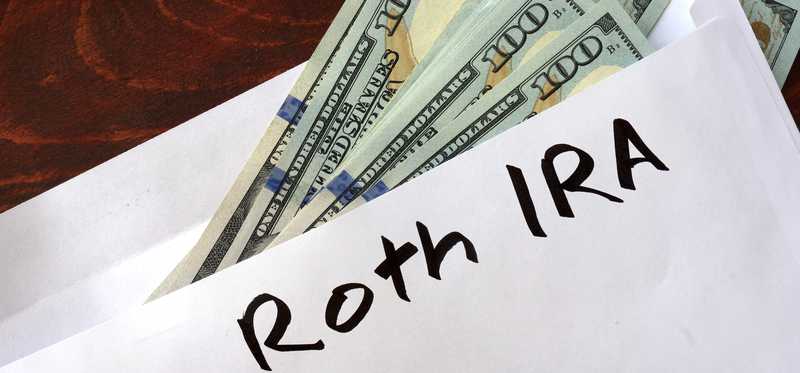14 Income Sources for Retirees

14 Income Sources for Retirees
How will you support yourself as a senior?
Whether you are currently retired or plan to be in the future, it's crucial to know where your income will come from.
Life in your later years can be expensive -- especially if you face high healthcare costs. You need to make sure you have sufficient funds so you don't face financial stress and deprivation.
So, what are your options for supporting yourself? Here are 14 possible income sources seniors may have access to.
5 Stocks Under $49
Presented by Motley Fool Stock Advisor
We hear it over and over from investors, "I wish I had bought Amazon or Netflix when they were first recommended by The Motley Fool. I’d be sitting on a gold mine!" It's true, but we think these 5 other stocks are screaming buys. And you can buy them now for less than $49 a share! Click here to learn how you can grab a copy of "5 Growth Stocks Under $49" for FREE for a limited time only.
Previous
Next

1. Social Security retirement checks
The most obvious income source for most seniors is Social Security retirement benefits. These become available as soon as age 62, although the longer you wait to claim them the larger your check becomes.
Social Security retirement benefits are designed to replace around 40% of pre-retirement income. That's not enough to live on, but this money will definitely come in handy. And best of all, it's guaranteed to last for life and protect against inflation due to periodic cost-of-living adjustments.
Previous
Next

2. Supplemental Security Income
Low income, disabled, and blind seniors may also receive Social Security checks from another source in addition to retirement benefits.
Supplemental Security Income (SSI) is available to certain elderly individuals with limited resources. You'll need to apply specifically for these benefits, but they can bring in hundreds of dollars extra per month if you are eligible.
Previous
Next

3. Spousal or survivors benefits
If you're currently married or were married for at least 10 years before divorcing, you could be eligible for Social Security spousal benefits. These can equal up to half of your spouse's primary benefit. If your partner was a higher earner, this income source may provide more money than your retirement checks.
Survivors benefits are also available to widow(ers) or to individuals whose ex-spouse passed as long as they were divorced after at least a decade of marriage.
You can't double-dip, though, so you'll have to choose between these benefits and your own retirement checks.
ALSO READ: 3 Must-Know Facts About Social Security Survivor Benefits
Previous
Next

4. Savings
If you have money saved in the bank, you can rely on it to cover some of your costs.
Although savings accounts don't pay a very high interest rate, it is a good idea for most seniors to have around two to five years of liquid savings accessible to them. That way, if there is a market downturn, they can rely on this money instead of having to sell investments at a loss.
Previous
Next

5. Taxable investment accounts
Many seniors have some money in a taxable brokerage account. These funds can provide a good source of income.
Taxable brokerage accounts provide more flexibility than tax-advantaged retirement accounts because you do not have to wait until 59 1/2 to start making withdrawals. They can be an important income source for people who want to retire early.
5 Stocks Under $49
Presented by Motley Fool Stock Advisor
We hear it over and over from investors, "I wish I had bought Amazon or Netflix when they were first recommended by The Motley Fool. I’d be sitting on a gold mine!" It's true, but we think these 5 other stocks are screaming buys. And you can buy them now for less than $49 a share! Click here to learn how you can grab a copy of "5 Growth Stocks Under $49" for FREE for a limited time only.
Previous
Next

6. 401(k) distributions
If you had a 401(k) at work, you can take distributions from it after age 59 1/2. You will be taxed on your distributions at your ordinary income tax rate.
A 401(k) is often one of the primary sources of funds retirees depend on. That's because these types of accounts are easy to invest in and employers often match contributions, which can help you to grow your account balance.
Previous
Next

7. Roth 401(k) distributions
If you chose to invest in a Roth 401(k) instead of, or in addition to, a traditional 401(k), you can get income from this source as a retiree as well.
The big difference between a Roth and a traditional account is that distributions from the Roth are not taxed. You can take as much money out as you would like without giving the IRS a cut of it.
Previous
Next

8. IRA distributions
Many people invest in an IRA instead of or in addition to a 401(k). People who don't have access to a 401(k) at their jobs can also save in this type of tax-advantaged retirement plan.
IRA distributions are also taxable at your ordinary income tax rate.
ALSO READ: These 3 Retirement Accounts Can Be Your Hero, Baby
Previous
Next

9. Roth IRA distributions
Like a Roth 401(k), Roth IRA distributions are not taxed as a senior. You won't owe the IRS a cut of the money you take out. The distributions also won't count in your income when you calculate whether your Social Security benefits become taxed or not. This is a major benefit of Roth accounts and makes them an important retirement income source.
Previous
Next

10. HSA withdrawals
Throughout your life, you are allowed to invest in a health savings account (HSA) if you have a qualifying high-deductible health plan. You can make tax-deductible contributions to an HSA and take out the money tax free if used for healthcare expenses.
HSAs are a great source of income used to cover medical care because of this tax benefit. But if you don't incur a lot of care costs, you're also allowed to take money out for any reason you want penalty free after age 65. You will be taxed at your ordinary income tax rate, though, if the funds aren't used for medical services.
5 Stocks Under $49
Presented by Motley Fool Stock Advisor
We hear it over and over from investors, "I wish I had bought Amazon or Netflix when they were first recommended by The Motley Fool. I’d be sitting on a gold mine!" It's true, but we think these 5 other stocks are screaming buys. And you can buy them now for less than $49 a share! Click here to learn how you can grab a copy of "5 Growth Stocks Under $49" for FREE for a limited time only.
Previous
Next

11. Whole life insurance plans
Whole life insurance plans don't just provide a death benefit to loved ones if you pass away. They are also an investment vehicle that acquires value over time.
You can tap into this money to help fund your retirement by withdrawing or borrowing from it tax free or doing a 1035 exchange for an annuity that provides steady income.
Previous
Next

12. Pension checks
If you work for an employer that offers a pension, you will receive this money on a regular basis. In most cases, the amount of your pension is based on your wages and the years worked. And your pension is usually guaranteed to continue paying out until your death.
Previous
Next

13. Income from work
For some seniors, income from full-time or part-time work is an important source of funds. You don't necessarily have to give up earning a paycheck just because you're "retired."
However, if you are under your full retirement age, you should be aware that working too much could cause you to temporarily forfeit Social Security benefits so be sure you know the rules before getting a job.
Previous
Next

14. Home equity
Finally, if you have a house you've been paying off, you likely have a lot of equity in it. You can turn this into a retirement income source by selling and downsizing to a smaller and cheaper home while pocketing the profits. Or you can look into a reverse mortgage.
5 Stocks Under $49
Presented by Motley Fool Stock Advisor
We hear it over and over from investors, "I wish I had bought Amazon or Netflix when they were first recommended by The Motley Fool. I’d be sitting on a gold mine!" It's true, but we think these 5 other stocks are screaming buys. And you can buy them now for less than $49 a share! Click here to learn how you can grab a copy of "5 Growth Stocks Under $49" for FREE for a limited time only.
Previous
Next

Which of these income sources will be available to you?
The more income sources you have as a senior, the more financial security you will enjoy.
If you aren't yet retired, start working on developing as many future income streams as possible. Your efforts will pay off when you don't have to worry about how to cover the bills in your later years.
The Motley Fool has a disclosure policy.
Previous
Next
Invest Smarter with The Motley Fool
Join Over Half a Million Premium Members Receiving…
- New Stock Picks Each Month
- Detailed Analysis of Companies
- Model Portfolios
- Live Streaming During Market Hours
- And Much More
READ MORE
HOW THE MOTLEY FOOL CAN HELP YOU
-
Premium Investing Guidance
Market beating stocks from our award-winning service
-
The Daily Upside Newsletter
Investment news and high-quality insights delivered straight to your inbox
-
Get Started Investing
You can do it. Successful investing in just a few steps
-
Win at Retirement
Secrets and strategies for the post-work life you want.
-
Find a Broker
Find the right brokerage account for you.
-
Listen to our Podcasts
Hear our experts take on stocks, the market, and how to invest.
Premium Investing Services
Invest better with The Motley Fool. Get stock recommendations, portfolio guidance, and more from The Motley Fool's premium services.